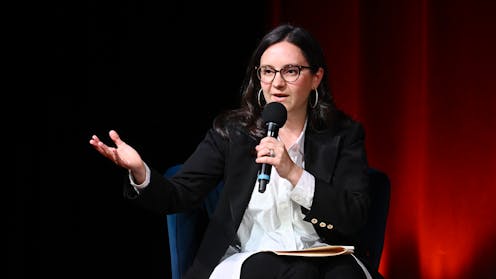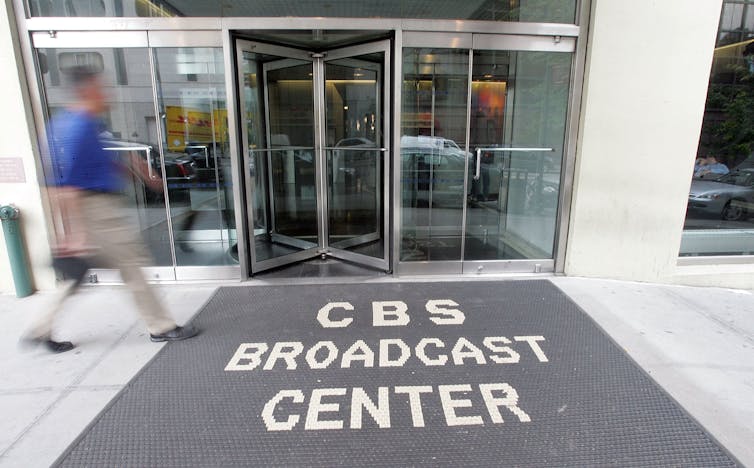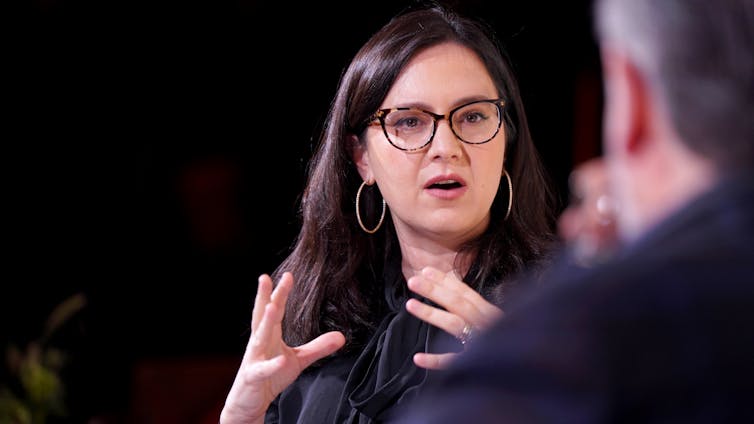A Bari Weiss-led CBS News would likely look different, but how the public feels about it might not change
- Bari Weiss, editor-in-chief of The Free Press, is reportedly being considered for the top job at CBS News, but it’s unclear whether her appointment would change how the public feels about the network.
- The public’s perception of CBS News is shaped more by a broad skepticism toward journalism as a whole, driven by assumptions that news outlets are motivated by profit over truth and mission.
- Research suggests that people’s trust in journalists and individual news organizations is less important than their overall distrust of the profession, which is fueled by concerns about corporate influence and profit-driven decision-making.
- A CBS News led by Weiss would likely be seen as a top-down effort to maximize profits rather than a genuine ideological shift, with viewers more likely to perceive it as a response to corporate interests rather than a commitment to their values.
- Ultimately, the appointment of Bari Weiss or any other journalist at CBS News is unlikely to change how the public feels about the network, given that perceptions are shaped by broader assumptions about the role of corporations in journalism and the pursuit of profit over truth and mission.

For weeks, there has been a great deal of reporting about an impending shake-up in the world of television news. Paramount Global CEO David Ellison is in talks to purchase The Free Press, an online media startup launched in 2021 as a conservative alternative to traditional news organizations.
Once the deal goes through, Ellison is weighing giving Free Press editor and CEO Bari Weiss the job of editor in chief at CBS News.
Should she get the job, Weiss will immediately become a “key figure in shaping the national news environment,” in the words of an article in The Guardian.
The writing Weiss has edited and produced over the years, which conveys a deep disdain for legacy news media, offers hints at what that “shaping” might look like. Among the examples: The Free Press has published essays accusing NPR of a “liberal bias” and arguing against diversity, equity and inclusion.
Weiss, who worked at The New York Times before starting The Free Press, quit her job in 2020 as an opinion editor and writer with a resignation letter that referred to the Times as a place where “intellectual curiosity – let alone risk-taking – is now a liability.”
Though it is too soon to say what, specifically, Weiss plans to do should she take over CBS News, her record at The Free Press suggests the network’s journalism would look radically different than it does now.
But even if Weiss dramatically changes people’s experience watching CBS News, it is unlikely those changes will affect how the public feels about CBS News.
This might seem counterintuitive. After all, isn’t someone’s reaction to media dictated by their experience consuming it? A movie is good if we find it entertaining and worthwhile, and it’s bad if the opposite is true.
Waning trust in journalism
Why isn’t the same true when it comes to journalism? We tend to take for granted that people will consume news despite the fact that most Americans find the news untrustworthy and the experience of following the news mentally exhausting. So, perhaps a better question is how people’s increasing distrust of journalism affects their interactions with and perceptions of individual news outlets.
As a scholar who researches the relationship between journalism and the public, I have spent the past five years trying to answer these questions. Since the spring of 2020, University of Oregon professor Seth Lewis and I have interviewed hundreds of Americans about their trust in journalists and journalism.
Our research, which has been published in academic journals and will be published soon in a book by MIT Press, suggests that people’s relationship with news is defined less by their impressions of individual news stories, journalists or organizations. Instead, the public’s views are shaped more by a broad skepticism toward the profession as a whole.

Photo by Mario Tama/Getty Images
That skepticism has less to do with what the news actually looks like than it does with people’s assumption that journalism is compromised by the pursuit of profit. As one of our interviewees told us: “It’s profits over journalism and over truth.”
This sentiment suggests that for the public it may not matter much whether Weiss takes over CBS, given it will still perceive Weiss’ boss as being more motivated by money than mission.
A bipartisan distrust of news
This profit-oriented skepticism toward the news goes against the conventional wisdom that people trust news outlets that they feel align with their political ideologies and distrust those that do not.
If that conventional wisdom were true, a Weiss-led CBS might alienate a progressive subset of the public while bringing in a conservative one. Weiss’ audience from The Free Press would follow her to one of the largest, most established brands in journalism, while those who share Weiss’ ideological leanings but are not aware of The Free Press would be pleasantly surprised to find their views suddenly represented on CBS News.
This sequence of events makes intuitive sense. Yet it is inconsistent with what we’ve learned about how people think about and interact with news.
Instead, people are likely to see CBS’ new direction less as a sign of a sincere, bottom-up ideological shift by those working at the network and more as a top-down effort by corporate elites seeking to maximize profits.
The people we interview often describe journalists generally, and television news reporters specifically, as being pushed by their organizations’ owners to politicize and sensationalize their reporting in hopes of appealing to – and monetizing the attention of – as large an audience as possible.

Photo by Leigh Vogel/Getty Images for Uber, X and The Free Press
“If you don’t get a certain number of views, you’re not making enough money,” one interviewee said.
Another explained that the people in charge of news channels suspect the public is too politically divided for unbiased journalism to be profitable. “Because there’s so much division now,” the interviewee said, “if a lot of journalists went toward being unbiased they will lose a lot of viewers.”
In other words, people are less likely to see the shift as a sign that those running CBS News now believe what they believe. Viewers are more likely to see it as a sign that the wealthy few who run CBS News are simply charting a new path toward monetizing the audience’s attention.
As one interviewee explained, news that the public encounters often ends up taking the form of “whatever the suits upstairs want journalism and reporting to be.”
A CBS News led by Weiss will likely be a very different network. That doesn’t mean it will find a different audience.
As Lewis and I have learned, and as Ellison and Weiss may soon find, people’s perceptions are a stubborn thing. When it comes to news media, those perceptions are less tied to the journalists themselves and more tied to assumptions about the corporations behind them.
![]()
Jacob L. Nelson does not work for, consult, own shares in or receive funding from any company or organization that would benefit from this article, and has disclosed no relevant affiliations beyond their academic appointment.
